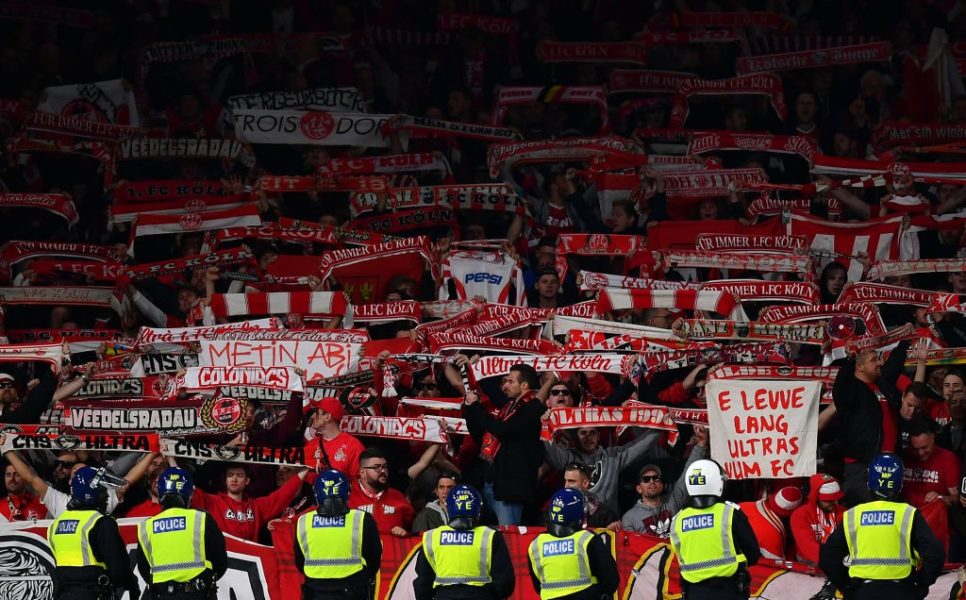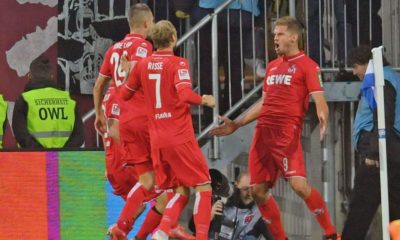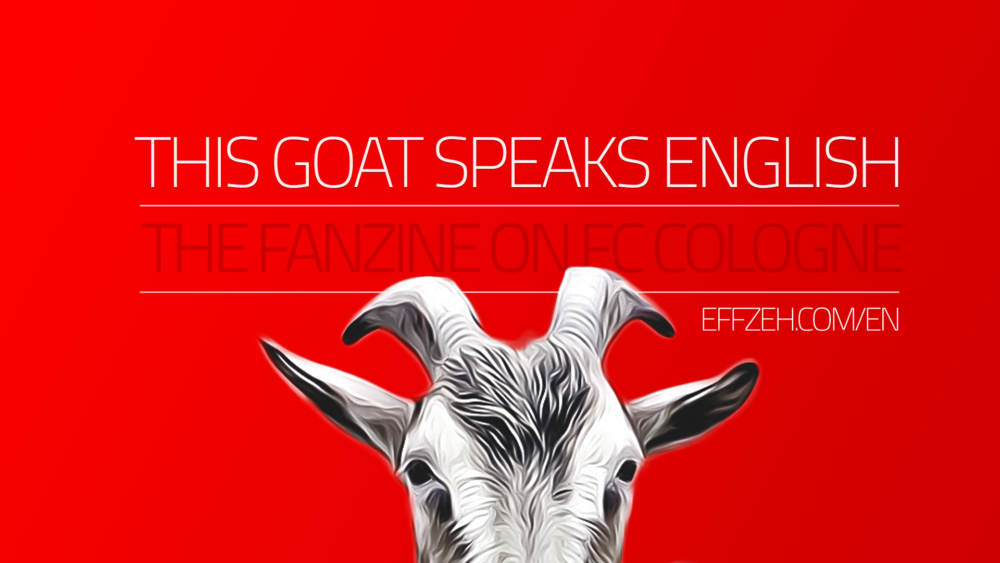Hello there!
That’s right. “Hello there!” Not “Guten Tag!” or even “Tach!” We are doing this in English, and not just as a quick stylistic choice, either.
After careful consideration and lots of hard work, the team at effzeh.com has decided to start offering English-language content for the growing number of us who have come to love the glorious 1. FC Köln, but get along much better in English than in German. It’s a move that acknowledges the growing interest in German football internationally, regardless of how closely such growth may be related to the dreaded “modern football.”
After little consideration (it’s unclear how much work it took), the team at effzeh.com has decided to allow me to be a part of this project. It’s a move that acknowledges I’m among the loudest of the English-tweeting loudmouths in the “effzeh” hashtag.
Personally, I am incredibly excited about this.
You should be, too.

When Cologne Fans left their mark on London… | Foto: Dan Mullan/Getty Images
When I first started following FC, there was virtually nothing written about it in English on the world wide web. Now the club offers English-language content on the homepage, as well as through English-only social-media channels. Meanwhile, you can easily find at least a handful of fans from English-speaking nations discussing club matters online, not to mention the broader international audience for which English is a secondary language. It’s been a lot of fun to watch.
Whatever your interest or knowledge level with 1. FC Köln, I want to use this space to welcome you on behalf of effzeh.com and take the opportunity to offer you a virtual “welcome packet” to get you some of the basics of being FC that you might not find on Wikipedia.
There’s a lot, so we’ll never cover this comprehensively, much less in a single entry, so let’s roll with some basics, shall we?
The name: 1. FC Köln
German football club names can sometimes be semi-impenetrable, as most include letter and/or number combinations that are necessarily foreign to the newcomer. Most everyone understands a club name constructed of, say, city or neighborhood name, optional qualifier or nickname, such as “United” or “Wanderers”, and an FC in some order.
German club names that are that straightforward are few and far between.
Let’s start with the last element here and work backwards. Köln is the home city of the club and better known throughout the world as “Cologne.” If you want more information on the relation between the city and the stuff you put on your body to alter your personal aroma, that’s when you go to the aforementioned Wikipedia. That stuff is already easily found in English.
“FC” is fairly widely understood to stand for “football club,” even in the United States where all their FC’s play “soccer” instead of football, with the professionals in Major League Soccer . . . er . . .Major League fSoccer (the “f” is silent?). Someday, we will have to get into the difference between “FC” standing for football club as an accurate description of an entity and “FC” as a branding concern, especially as it is somewhat crucial to the identity of this particular club. For now, just know that when you refer to this FC, you truly mean “football club” in every sense of the term.
Okay, so we have a football club from Cologne. You probably figured all that already, but WHAT is the deal with the “1.”?
Simply, it’s precisely what you might think: first. In this case, it doesn’t mean it was the first club in the city of Köln’s existence because it wasn’t. The FC was formed in 1948 by the merger of existing clubs (again, you can Wikipedia the high-level details). Instead, it means “first” as in “primary” or “top.” Obviously, fans of Viktoria or Fortuna might take exception to this self-proclamation, but the FC IS the predominant club in the city in most measurable ways, so . . . take that.
Now you can chant along with one of the most-frequent stadium chants you’ll hear while watching this club on the TV, whether home or away:
AIR-STIR FOOS-BALL CLUB KOHLN!
AIR-STIR FOOS-BALL CLUB KOHLN!
AIR-STIR FOOS-BALL CLUB KOHLN!
AIR-STIR EFF-ZEH KOHLN!
Speaking of which . . .
See next page: the nickname and the hymn










